Opinion: Eric Reid’s NFL return about more than football
Carolina Panthers’ safety Eric Reid (#25) kneels as quarterback Cam Newton (#1) and head coach Ron Rivera (far right) stand during the national anthem before last Sunday’s game against the New York Giants | Photo courtesy of Jason E. Miczek, Associated Press
October 9, 2018
Michael Brock is the Editor in Chief for The Easterner. The opinion expressed in this article is his own, and does not necessarily reflect the opinion of the rest of The Easterner’s editorial board.
On Sunday afternoon, Carolina Panthers’ safety Eric Reid became the first player in the team’s 23-year history to kneel for the pregame national anthem. This demonstration was in protest of racial inequality and police brutality in the United States.
During the 2016 preseason, Reid was the first player to join then-San Francisco 49ers teammate, Colin Kaepernick, in kneeling during the anthem. That was after Alton Sterling, a 37-year-old black man, was shot and killed by two white police officers in Baton Rouge, Louisiana. No charges ended up being filed against the officers, but the shooting led to protests in the Baton Rouge area, and served as a launching point for Reid to kneel in solidarity with his teammate.
The game on Sunday, which was a 31-30 victory over the New York Giants, was Reid’s first of the season after signing a one-year contract on Sept. 27. Kaepernick hasn’t played a down of football since the 2016 season. Reid suited up in 2017 for the 49ers, but wasn’t re-signed at the end of the campaign.
In May, Reid filed a grievance against the NFL, saying the league colluded to keep him off team rosters because of his protests. Kaepernick had already filed a similar suit, which is still ongoing. In his opening press conference, Reid said his case will “absolutely” continue even though the Panthers signed him.
And it has every right to.
Over the offseason, the Cincinnati Bengals brought him in for a workout and seemed like they wanted to sign him. But when they heard his plans for the anthem, they allegedly decided against it.
There is no football-related reason why it took so long for the 26-year-old Reid to get signed. The LSU-product spent five seasons with the 49ers before becoming a free agent after last year. Yes, there was a depressed safety market in the NFL. But there are certainly teams who could have used his talents far earlier in the season.
Reid is simply one of the best safeties in a league that is relying more and more on the position.
At the end of the 2017 season, Bleacher Report ranked the top strong safeties of the year, slotting Reid at 10th. (They ranked 49ers’ Jaquiski Tartt, who Reid essentially lost his starting job to, third). Reid was also temporarily moved to weak side linebacker for the 49ers when injuries hit and NaVorro Bowman was released.
In the Bleacher Report piece, writer Kyle Posey said, “Reid excelled in the box. He was aggressive against the run and didn’t miss too many tackles. He had no problem going out wide or playing in slot coverage, either. Look for the impending free agent to have a big impact for whoever he plays for.”
Even with the high praise from analysts, it took nearly a month into the regular season for Reid to get picked up.
Panthers’ general manager Marty Hurney said the team never asked Reid if he’d continue his protest. Head coach Ron Rivera and quarterback Cam Newton declined to answer questions about Reid postgame, while Carolina players said the only distraction throughout the week had been reporter’s questions. To them, it was strictly a football decision.
However, the fact of the matter is Reid’s return to the game is about much more than his production on the field.
Just pay attention to what he’s been saying all along.
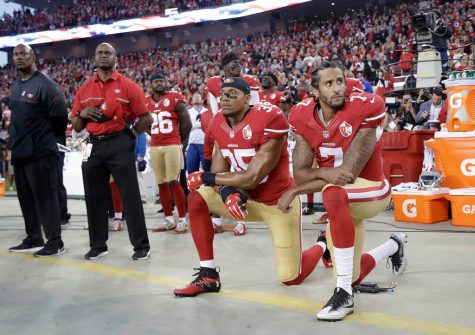
Reid started kneeling following Sterling’s slaying and continued through 2016. Before the 2017 campaign, Reid decided he’d go back to standing for the anthem. However, after the violent white supremacist protests in Charlottesville, Virginia, he reconsidered.
Last September, almost a year to the day before he signed with the Panthers, Reid wrote an op-ed in The New York Times titled: “Why Colin Kaepernick and I Decided to Take a Knee.” In the piece, Reid discusses how the protest has been mistaken as disrespect to patriotism.
“We chose to kneel because it’s a respectful gesture,” Reid wrote in the article. “I remember thinking our posture was like a flag flown at half-mast to mark a tragedy. It baffles me that our protest is still being misconstrued as disrespectful to the country, flag and military personnel. We chose it because it’s exactly the opposite. It has always been my understanding that the brave men and women who fought and died for our country did so to ensure that we could live in a fair and free society, which includes the right to speak out in protest.”
In March, after the 2017 season, Reid said he was considering other ways to bring awareness to the country’s issues, and didn’t think it would be in the form of protesting during the anthem. But clearly, that has changed.
After the win over the Giants, Reid said the country has “made no progress” as far as social injustice is concerned.
“We’ve made baby steps, but people try to give crumbs and present them as cakes,” Reid said. “So you can come at me with all the hate you want but it doesn’t change the fact of the truth. I’ve always been considering what’s best for the movement. I’ve always told myself when the time comes to stop kneeling that I’ll stop—that time has not come.”
In his opening press conference with the Panthers last week, Reid was asked why the issue of empowerment was worth the potential risk of unemployment.
“I’ll put this this way — next year will be 2019,” Reid said. “It will mark 400 years since the first slaves touched the soil in this country. That’s 400 years of systematic oppression. That’s slavery, Jim Crow, New Jim Crow, mass incarceration—you name it […] This has been happening since my people have gotten here. So I just felt the need to say something about it.”
Reid ended the press conference with, “I will keep speaking for my people.”
And he should, because the Panthers are giving Reid a platform to speak for what he believes in, even if they aren’t acknowledging it.



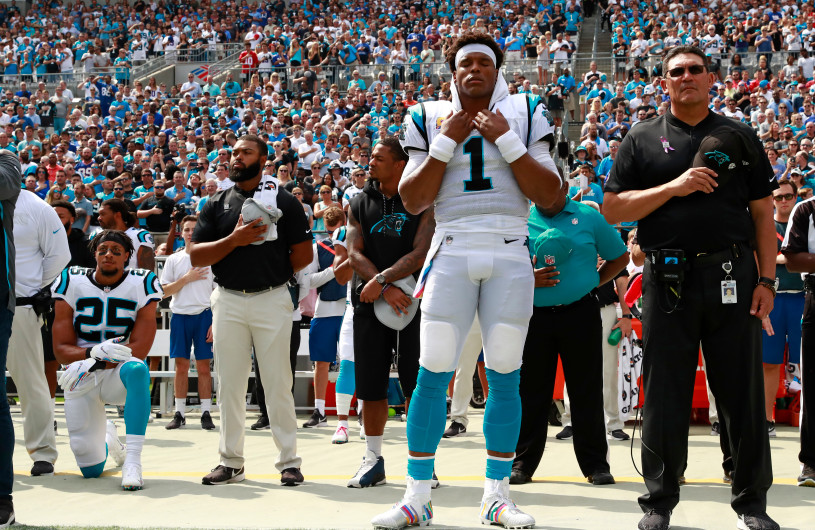




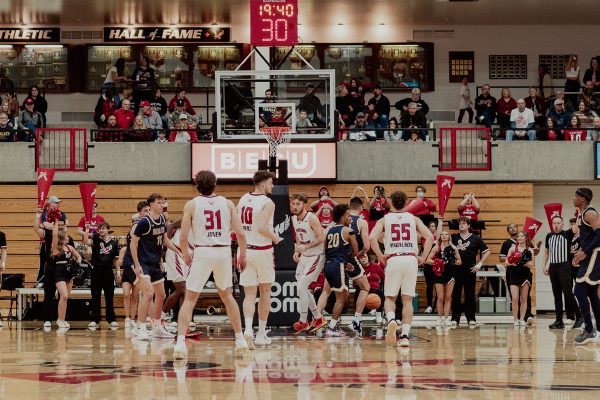
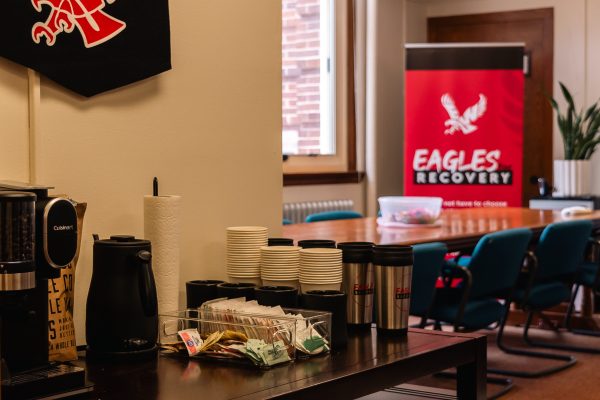
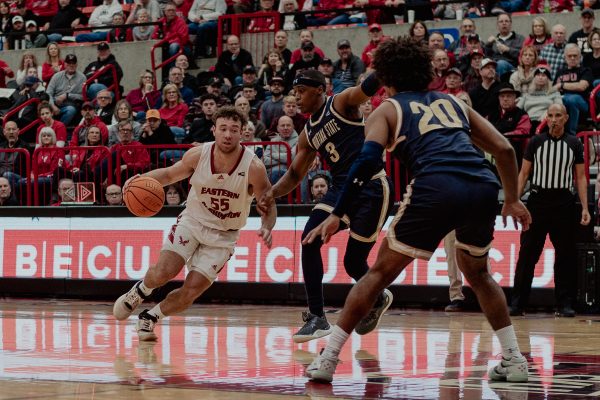
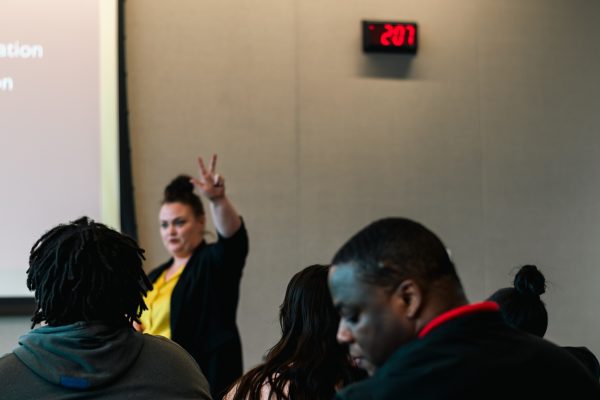
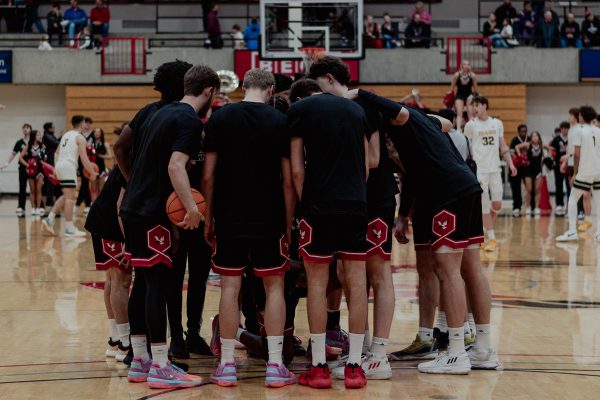



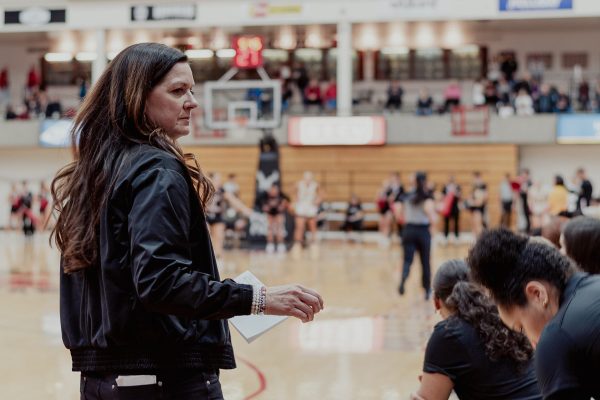
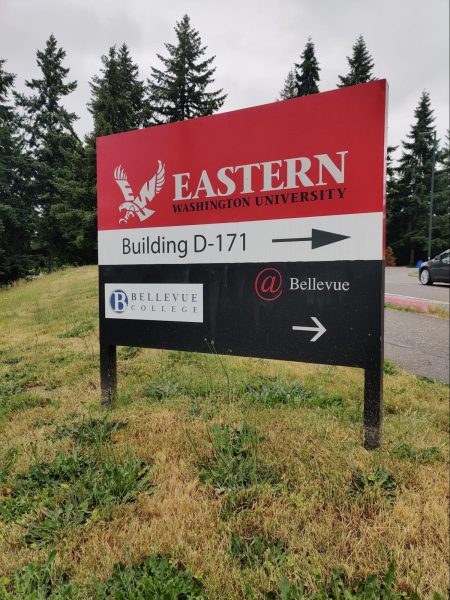

K.J. Hinton • Oct 11, 2018 at 1:00 pm
What an absurd editorial.
No one appointed him to speak for anyone.
I could care less if he protests.
On HIS time.
But I didnt see him around the slaughterhouse known as Chicago, where literally hundreds of blacks are slaughtered every year by other blacks… just like thousands are wounded every year by other blacks.
Why is that?
Of course no one should ever shoot anyone based on a racial motive. No police officer should concern thems3lves with a oerson’s veneer. But clearly both Reid and Kaeperpick have such a motive by limiting their actions to concern over blacks getting shot by the cops…. yet they remain silent in the face of blacks killing blacks.
These protests are not a “right.” They’re tolerated by a business fearful of what will happen if they treat either of those two like they’ve treated so many others who’ve said the wrong thing, worn the wrong tshirt or shoes or any of the other reasons the NFL has fined players hundreds of thousands of dollars.
This childish wasted nonsense, which has cost the NFL hundreds of millions of dollars and millions of fans has accomplished nothing towards their goal… nor will it.
Black lives won’t matter, you see, until they matter to other blacks.
These two and the others make as much sense as the captain and first officer on the Titanic arguing over the china pattern in second class after they felt that bump and saw the iceberg go floating by.
Reid doesnt care about blacks killing each other. He doesnt care about people in Africa owning slaves TO THIS DAY.
Because that won’t fit the meme.
This will be my 3rd year of ignoring the NFL and these over-paid prima donna millionaires who believe that because they mastered the art of playing a game, anything they say beyond that is somehow worth listening to
It isn’t. No more than anyone else must be listened to because they can play a game.